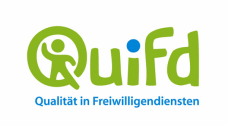Dienstag, 16. April - Dienstag, 28. Mai 09:00 Uhr - 17:30 Uhr
Restorative Justice
Trainer: Dr. James Peter Tyrone Savage
Language: English
The course is designed for anyone working with damage and hurt done in the context of a conflict, whether interpersonal, communal, or in conditions of war and / or authoritarianism. It is also designed to provide tools in support of peaceworkers deployed to field locations, where they are working with local organizations and communities amid the ongoing impacts of a larger conflict.
Content
Among the most daunting challenges facing societies emerging from violent conflict is what to do with the gross violations of human rights committed during the conflict. The Nuremberg trials established a historic precedent for legal accountability for such acts, and the field loosely known since the 1990s as ‘Transitional Justice’ have served to consolidate international consensus on the need for a reckoning with past abuses.
But if a society is to transform its heinous past into learning resource for the future it also has to address the needs of people who have lived through the violence. And, in this, the field of Restorative Justice has become growingly recognized for its inclusive approach to all stakeholders in a conflict. Restorative Justice has the ability to transform the lives of victims, of those who caused the harm, and of the broader citizenry. Restorative Justice contribute to a groundswell in society of reconciliation.
Objectives
- To expose trainees to the historic ways in which Restorative approaches emerged as a critical response to developments within international practice of Transitional Justice and
- To explore how it may complement institutionally based approaches to Dealing with the Past or serve as an erstwhile alternative amid the resistance of political elites to any reckoning with past abuses.
- To establish trainees’ fluency in basic Restorative Justice terms, practices, and ethical basis.
- To enable trainees to apply this learning to a particular context, of their choosing.
- To explore indigenous and localized practices, especially in trainees' selected contexts, that evince internationally recognized principles and values of Restorative Justice.
- To deliver to trainees hands-on experience of the tools of Restorative Justice, in class, with other participants, in all roles (mediator, victim, person responsible for harm done, other stakeholders ..).
Key Concepts
- Restorative Justice, including as an integral element of Dealing with the Past
- Victim-Offender Mediation
- Group Conferencing, Circle Processes, and Community Panels
- Reparations
Methodology
Delivery of the content entails the flipped classroom pedagogy, which here looks as follows:
- Participants select a context on which to focus throughout the 7 weeks
- Trainer delivers a 40-min pre-recorded lecture using PowerPoint in BBB on the coming week’s topic, comprising intro to core concepts and theory, using extensive historical illustration.
- Participants provide one-page written response applying learning to their chosen context
- Trainer responds in time for participants to prepare for live session
- The live session comprises a trainer-facilitated peer discussion
In the course, participants use a variety of tools, including a digital learning platform, a video conferencing tool, and an online whiteboard. Participants should therefore have a good internet connection (1 Mbit down/upload or better). A headset is highly recommended.
After a successful participation, participants receive a certificate and become part of our alumni network.
Workload
- Select a context on which to focus throughout the 7 weeks
- Listen each week to a 40-min pre-recorded lecture on the coming week’s topic
- Draft a one-page written response applying the learning to their chosen context, in time for trainer response ahead of the next live session
- Participate in weekly live session (a trainer-facilitated, peer discussion, each of which closes with all participants noting steps taken on their learning journey)
- Using the (already written) weekly one-pagers as building blocks, deliver a short presentation (7 or 8 minutes) on a restorative justice strategy for tackling a particular conflict in the context of your choice.
Total expected weekly hours: 5 to 6 hours per week
| Veranstalter: | Akademie für Konflikttransformation im forumZFD |
| Veranstaltungsadresse: | Online |
| Veranstaltungsort: | Online, nach der Anmeldung erhalten Sie, per Mail, Zugangsdaten zu unserem Lernportal |
| Kontakt: | Akademie für Konflikttransformation im forumZFD |
| Ansprechpartner: | Marie Zornbach |
| E-Mail-Adresse: | zornbach@forumzfd.de |
| Anmeldung: | Online bis 02.04.2024: https://www.forumzfd-akademie.de/de/seminar/restorative-justice |
| Teilnahmegebühr: | Early Bird: 450€ when booking until 20 Februar; Regular Price: 500€ |
 forumzfd.de
forumzfd.de